Claustrophobia is usually at the heart of video game horror. Whether in first or third-person perspective, horror titles almost inevitably find you inching through cramped and dark spaces, with something horrible hunting you and no room to escape.
Night School Studios’ Oxenfree II: Lost Signals (and the original Oxenfree) do the exact opposite. These games’ tiny characters are dwarfed by the world around them, with the camera pulled way back to show off as much of the environment as possible. This series delivers sophisticated frights: the laws of physics gone awry, a bad trip-like nausea that things aren’t quite right, and that something somewhere has gone very, very wrong.
All the above will be familiar to those who played 2016’s Oxenfree, which quickly distinguished itself as one of the best indie games of that year. That first outing followed a group of teenagers exploring a mysterious island and the strange paranormal forces that reside there. Oxenfree II picks up this story five years later, with new hero Riley soon enmeshed in the same surreal phenomenon.
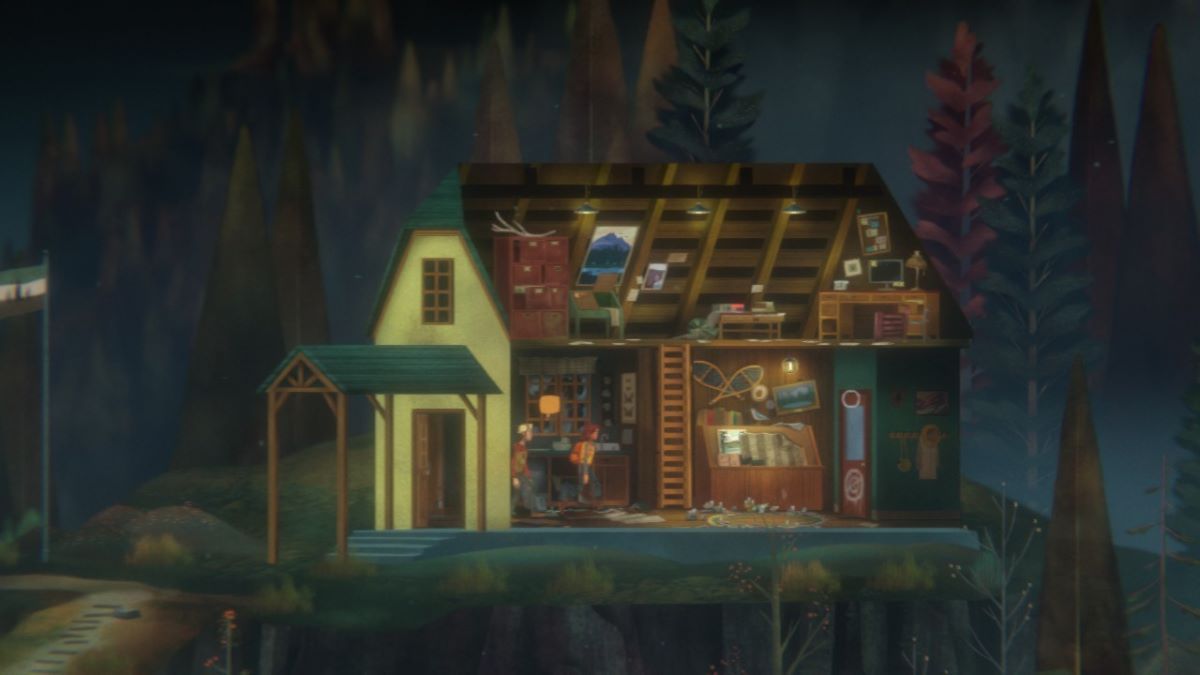
I played and enjoyed Oxenfree in 2016 but, seven and a half years on, I only had a very hazy memory of what happened. Night School Studios studio head Sean Krankel has insisted that “knowledge from the previous installment is not necessary to follow this new story”, but frankly, that’s just not true, and the sequel’s narrative objectively doesn’t work unless you’ve played Oxenfree.
There’s also no recap of the previous game within Oxenfree II, so when it quickly became apparent that the sequel’s plot relies on you being familiar with the whos, hows, and wheres of the first Oxenfree, I ducked out to watch a YouTube plot recap. If you’re in the same boat as me, I recommend doing the same (or, just replay Oxenfree, which is a brief n’ breezy four hours long).
After that minor speedbump, Oxenfree II goes down very smoothly. In contrast to the original’s teen cast, you play as the 32-year-old Riley, who arrives back in her hometown of Camena, Oregon, dragging a hefty load of emotional baggage. She’s back to do a job: setting up a series of transmitters around the town in order to monitor the strange phenomenon the region is known for.
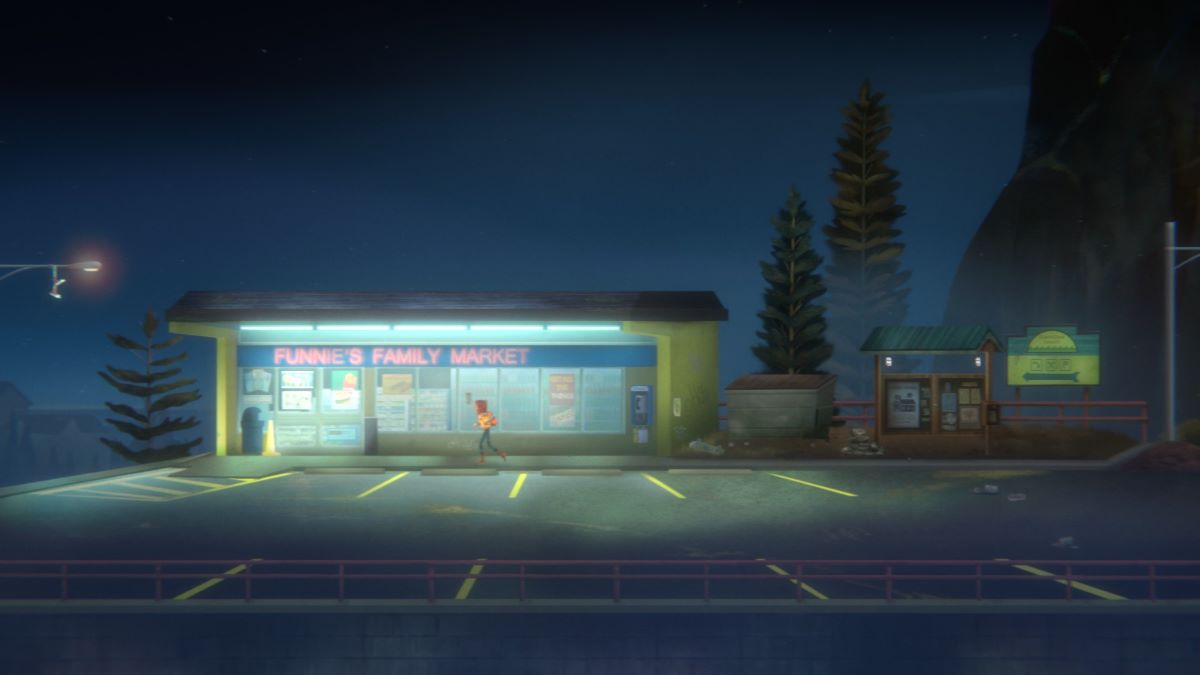
Riley’s soon introduced to her affable co-worker Jacob, also in his thirties. The pair remain together throughout the game, with Jacob piping up with various observations and thoughts. You’re also given a walkie-talkie to contact people, be it your boss, the coastguard, a forest ranger, or simply the agony aunt from the local high school’s advice line (I strongly recommend getting in touch with her).
Oxenfree II sticks to the same basic gameplay formula as the original: you explore spooky 2D environments, solve some fairly straightforward puzzles, and natter away with your friends. The excellent dialogue system from the original returns unchanged, delivering naturalistic conversations with other characters that never feel stilted. I also appreciate the option to simply remain silent, as even if you don’t actually pick a dialogue option, your available choices almost always shed some fresh light on Riley’s inner turmoil.
All that’s uplifted by Riley, who’s one of the most well-written and smartly performed video game protagonists in a hot minute. She’s sardonic but emotionally perceptive (or at least that’s how I played her), approaching her bizarre mission with a can-do attitude. Sure, reality is tearing itself apart at the seams and there are sinister ghosts everywhere, but Riley has a job to do, dammit.
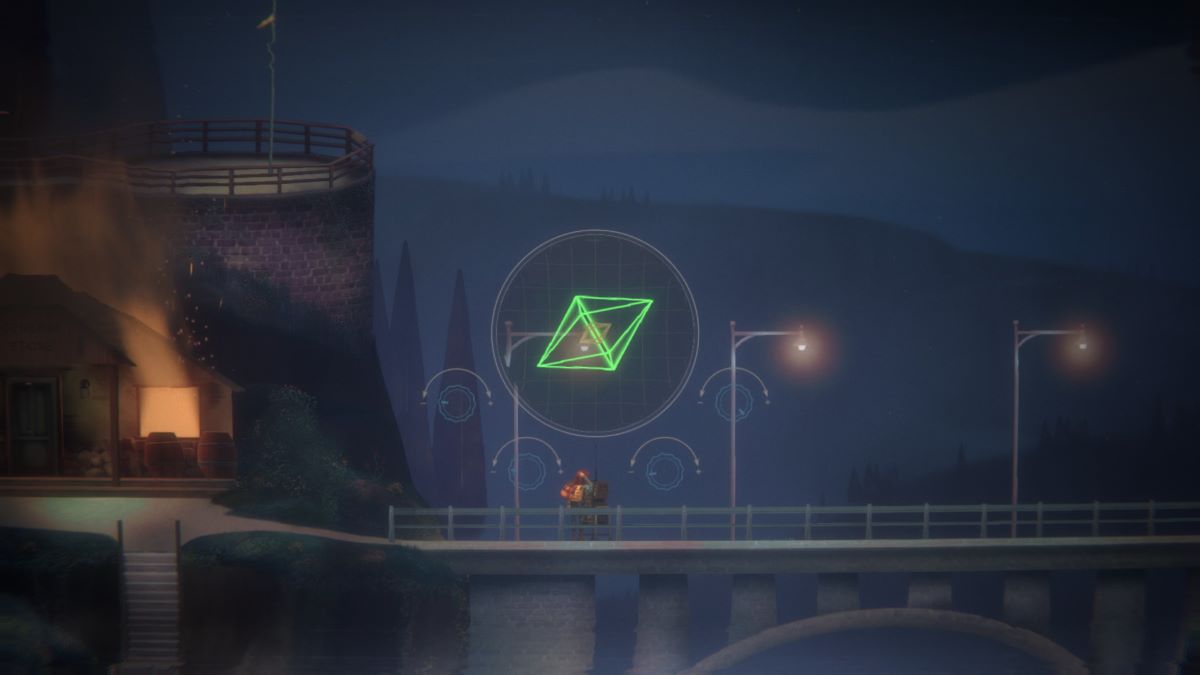
I’m also in awe of actress Liz Saydah’s vocal performance as Riley. Her voice has the edge of hard-won experience; like the world has thrown all it can at her and she’s still standing. Riley gets put through the emotional and physical wringer in this game, but no matter what mind-bending or terrifying scenario she’s plunged into, Saydah always hits the perfect note. Frankly, I could listen to her read the phone book and I hope Oxenfree II opens the door for more work for her.
The sequel also lives up to the first game’s sterling presentation. Backgrounds are uniformly attractive in a creepy children’s book sort of way, with the distortion effects that pop up in spookier sequences disorientating players in the best possible way. As appropriate for a game with a radio at its core, the audio is also top-notch. It’s satisfying to fiddle with the dial, hearing snatches of strange ham radio; enthusiastic, fuzzy music; or terrifying metallic droning sounds.
With a scanty 4-5 hours until the end credits roll, Oxenfree II is mercifully free of padding, though if you really want to spend more time in the world there are hidden collectibles dotted around the map. Oxenfree II wants you to see its story through to the end, with narrative prioritized over difficulty. That’s probably the right call, though the consequence is that the puzzles the game throws in your path will not require a lot of thought.
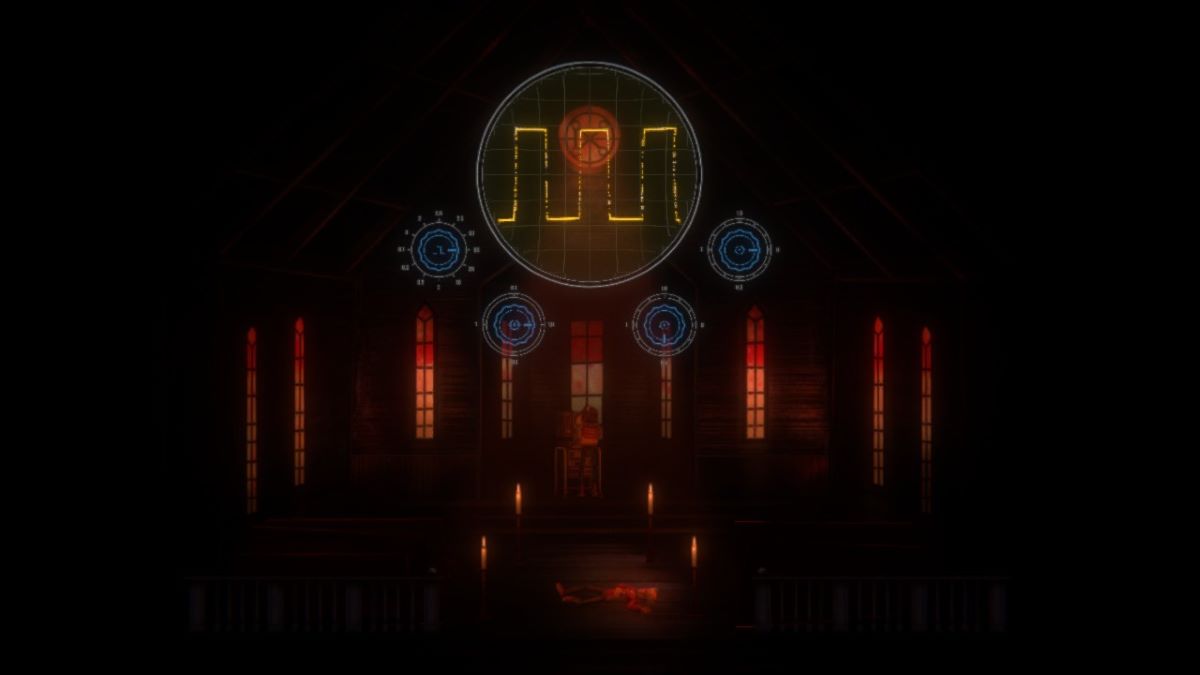
The only problem with this is that Oxenfree II teases some very fun puzzle mechanics yet fails to iterate on them in a satisfying way. For example, there are puzzles based around a time travel mechanic in which you must determine which year a given location is accessible. This could be the start of an awesome historical research brainteaser, though, in practice, the characters just tell you the right year, and executing the solution involves flipping two switches. It’s easy to imagine an alternative Oxenfree II that takes the form of a fiendish temporal puzzle platformer, but perhaps it’s just better to appreciate what we’ve actually got.
More satisfying is the game’s choice and character-building. Throughout the story, you’ll make key decisions, with the most critical revolving around assisting key NPCs. But, there’s one huge choice in the game’s finale that descends a little too deep into temporal sci-fi territory to be relatable. After all, it’s one thing deciding whether or not to reveal a key piece of personal information to a new friend, and quite another to make a life-or-death call involving bizarre unknowable dimensions that exist outside of time and space.
Quibbles aside, this is exactly the kind of quality sequel Oxenfree deserves. The story retroactively improves the original game, bristling with awesome dialogue, and is so creepy that it even gave me chills while playing it on Steam Deck during a crowded train commute.
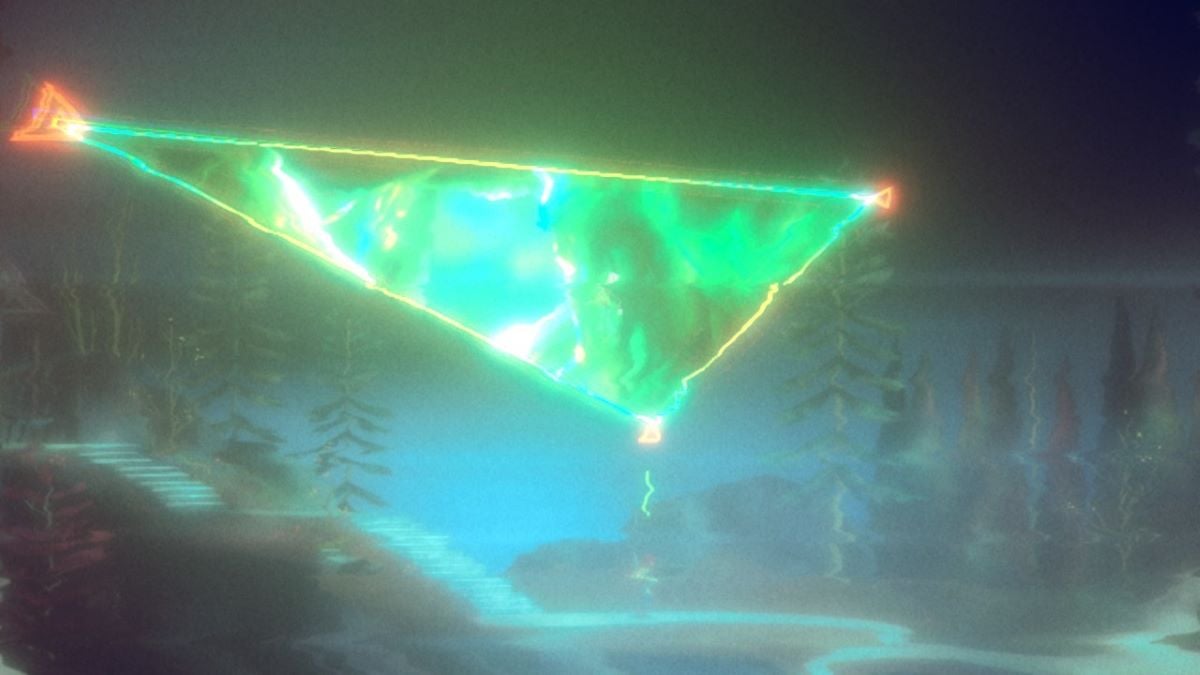
If you haven’t dipped your toe into Oxenfree, now is the time. The first game can be downloaded by anyone with a Netflix subscription, and Oxenfree II will be available on the service at launch. Check them out!
This review is based on the PC version of the game. A copy was provided to us by Night School Studios.

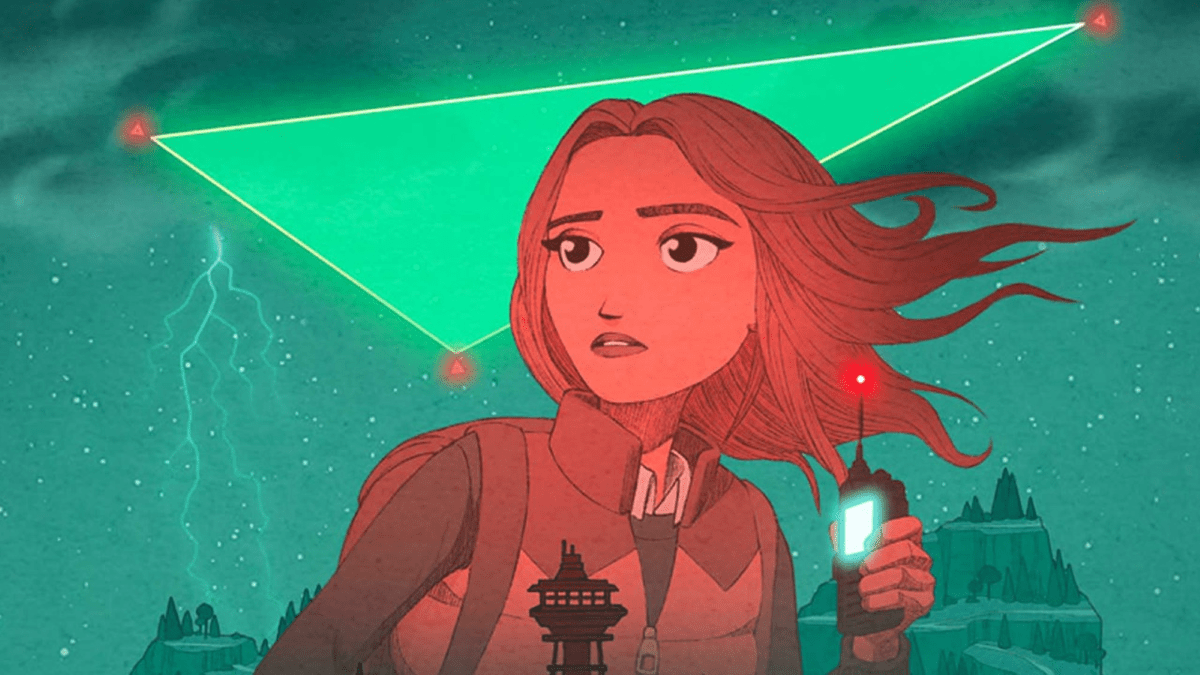









Published: Jul 12, 2023 02:00 am